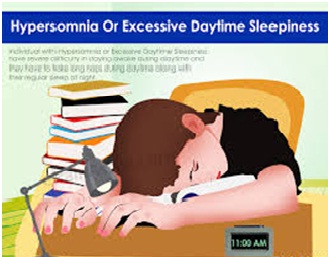Idiopathic Hypersomnia (IH) Causes, Symptoms, Diagnosis and Treatment

What Is Idiopathic Hypersomnia?
Idiopathic hypersomnia is a neurological disorder, which is characterized primarily by severe excessive daytime sleepiness.
It is different from narcolepsy, because idiopathic hypersomnia does not involve suddenly falling asleep or losing muscle control due to strong emotions.
Historically, it has been rarely diagnosed and is often very difficult to diagnose at an early stage.
Due to lack of public awareness, people who suffer from it usually have to endure social stigma.
Causes Of Idiopathic Hypersomnia:
The underlying cause of idiopathic hypersomnia, until recently, has been largely unknown.
However, researchers have identified a few abnormalities associated with IH, which with further study may help to clarify the etiology. These include:
- Destruction of noradrenergic neurons
- injury toadrenergic neurons
- malfunction of thenorepinephrine system
- decreased cerebrospinal fluid (CSF) histamine levels
- hypersensitivity to GABA (the major brain chemical responsible for sedation)
Moreover the following factors increase the likelihood of developing idiopathic hypersomnia:
- Atypical depression
- Certain medications
- Drug and alcohol use
- Low thyroid function (hypothyroidism)
- Previous head injury
Symptoms Of Idiopathic Hypersomnia:
The following symptoms may be present:
- Daytime naps that do not relieve drowsiness
- Sleep inertia
- Sleep paralysis
- hypnagogic hallucinations
- Difficulty in waking up from a long sleep — may feel confused or disoriented
- Increased need for sleep during the day — even while at work, or during a meal or conversation
- Increased sleep time — up to 14 to 18 hours per day
- Anxiety
- Feeling irritated
- Loss of appetite
- Low energy
- Restlessness
- Slow thinking or speech
- Trouble remembering
- Palpitations
- Digestive problems
- Difficulty in regulation of body temperature
- Peripheral vascular symptoms
- Cold hands
- Cold feet
- Autonomic dysfunction
- Fainting episodes
- Dizziness upon arising
- Headaches
- Food cravings
- Impotence
Diagnosis Of Idiopathic Hypersomnia:
After taking a sleep history, the doctor may perform the following tests in order to diagnose idiopathic hypersomnia:
- Multiple-sleep latency test
- Sleep study (polysomnography, to identify other sleep disorders)
- Psychiatric evaluation for atypical depression
Treatment For Idiopathic Hypersomnia:
There is no cure for idiopathic hypersomnia. However, it can be managed.
- Medications
- Stimulant medications
- Amphetamine
- Methylphenidate
- Wakefulness prompting medications
- Atomoxetine
- Ritanserin
- GABA directed medications
- clarithromycin
- Flumazenil
- Lifestyle changes
- Avoiding alcohol and medications that can make the condition worse
- Avoiding operating motor vehicles or using dangerous equipment
- Avoiding working at night or social activities that delay bedtime
By : Natural Health News




